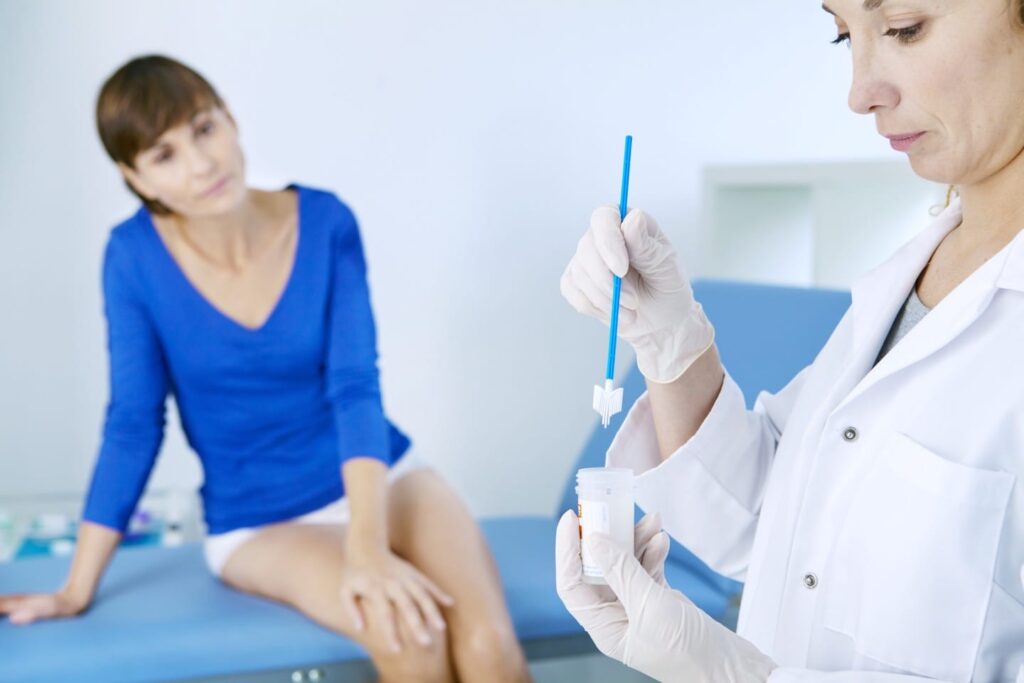PCOS treatment in Aurangabad
PCOS and Menopause
Polycystic ovary syndrome (PCOS) and menopause are both related to hormones, but menopause doesn’t cure PCOS. When you reach menopause, you may still have some symptoms of PCOS in addition to symptoms of menopause.
A woman is considered to have gone through menopause when she has not had a period for 12 months. The average age Trusted Source this happens is at 51 years. Women with PCOS tend to go through menopause an average of 2 years later than women without the condition. Menopause does not cure PCOS. When women go through menopause, they may still experience symptoms of PCOS, as well as symptoms of menopause.

Symptoms
PCOS symptoms frequently appear around the time of the first menstrual cycle. Sometimes, after having periods for a while, symptoms appear later.
Different PCOS symptoms exist. When you exhibit at least two of them, you are given a PCOS diagnosis.
irregular time frames. PCOS is frequently characterized by irregular or infrequent menstrual cycles. Having periods that last several days or longer than what is customary for a period is also acceptable. You might, for instance, experience less than nine periods year. Additionally, those intervals may be greater than 35 days. You can experience difficulties conceiving.
a surplus of androgen. Excessive body and face hair may come from high androgen levels. Hirsutism is the term for this. Male-pattern baldness and severe acne can also occur occasionally.
ovarian polycysts. Perhaps your ovaries are larger. On the ovary’s border, many follicles carrying immature eggs may form. The ovaries may not function properly.
Menstrual issues
For women who do not want to become pregnant, the most common PCOS treatment is birth control. Hormonal birth control, which can take the form of pills, a skin patch, a vaginal ring, shots, or a hormonal IUD (intrauterine device), can help restore regular periods.
These birth control methods may also reduce your risk of developing endometrial cancer, which occurs in the uterine lining.
Medications
.Your doctor may advise you to do the following to control your periods:
Birth control pills that work together. Pills containing both estrogen and progestin reduce androgen production while also regulating estrogen. Hormone control can reduce your risk of endometrial cancer as well as irregular bleeding, excess hair growth, and acne.
Progestin treatment. Progestin taken for 10 to 14 days every 1 to 2 months can help regulate your periods and protect you from endometrial cancer. This progestin therapy has no effect on androgen levels and will not prevent pregnancy. If you also want to avoid pregnancy, a progestin-only minipill or a progestin-containing intrauterine device is a better option.
Your doctor may advise you to do the following to help you ovulate and become pregnant:
Clomiphene. This anti-estrogen medication is taken orally and is taken during the first part of your menstrual cycle.
Letrozole (Femara) (Femara). The ovaries may be stimulated by this breast cancer treatment.
Metformin. This oral type 2 diabetes medication improves insulin resistance and lowers insulin levels. If you do not become pregnant while taking clomiphene, your doctor may advise you to take metformin to help you ovulate. If you have prediabetes, metformin can help you lose weight and slow the progression to type 2 diabetes.
Gonadotropins. These hormone medications are administered via injection.
Your doctor may advise you to do the following to reduce excessive hair growth or improve acne:
Pills for birth control. These pills reduce androgen production, which can result in excessive hair growth and acne.
Spironolactone (Aldactone) (Aldactone). This medication inhibits androgen’s effects on the skin, including excessive hair growth and acne. Because spirolactone can cause birth defects, it is essential to use effective birth control while taking this medication. This medication is not advised if you are pregnant or intend to become pregnant.
Eflornithine (Vaniqa) (Vaniqa). This cream can help to slow the growth of facial hair.
Hair removal is performed. . Electrolysis involves inserting a tiny needle into each hair follicle. The needle emits an electric current pulse. . Laser hair removal is a medical procedure that removes unwanted hair with a concentrated beam of light. You may require multiple electrolysis or laser hair removal treatments. Other options include shaving, plucking, or using creams that dissolve unwanted hair. However, these are only temporary, and hair may thicken as it grows back.
Treatments for acne. Acne medications, such as pills and topical creams or gels, may help. Consult your doctor about your options.
What to anticipate from your doctor
What are your signs and symptoms? How frequently do they occur?
How severe are your symptoms?
When did each symptom appear?
When was your most recent period?
Have you gained weight since beginning to have periods? How much weight did you put on and when did you put it on?
